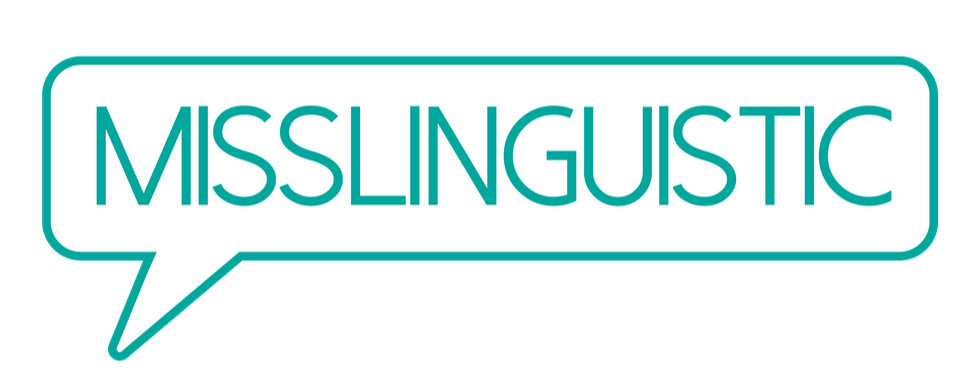Hello world! My name is Sara Maria Hasbun, and I’m an American linguist who has struggled with learning languages my whole life. Despite being half-Salvadoran, I grew up monolingual, as we only spoke English at home.
High school Spanish was particularly frustrating.
I could memorize the conjugation tables and pass all the tests, but could not speak a word. I dreaded being called on in class. When Spanish speakers approached me in the street for directions, assuming with my morenita face that I was a Spanish speaker, I would stutter and apologize.
After one particularly humiliating Spanish lit class in university, I resolved to master the language, and signed up to live with a host family in Spain for the summer. I taught English to the family’s children every morning, in exchange for room and board. I spent every afternoon poring through their bookshelf and painstakingly listing every word I didn’t know while I waited for my e-mail to load via painfully slow dialup. Over dinner, this angelic family patiently waited for me to grapple for words and corrected my mistakes.
Slowly, I gained confidence and ability. By the end of the summer, I was joking and flirting with my new Spanish friends, and marveling at the fully-formed sentences springing from my mouth.
Once I had learned the language, I looked back on my previous studies and tried to reverse-engineer what had gone wrong. Was immersion really the magic key to fluency? But if so, why? I started tutoring college students in Spanish and taking careful notes of their mistakes. And I enrolled in a Linguistics course…along with French, Mandarin, and Russian.
Suddenly learning a foreign language felt like skiing downhill. I could memorize vocab lists in the five minutes before class, grammar came naturally, and I was winning awards for essays in Russian and being asked to present my language learning strategies to the Chinese department. Apparently it wasn’t immersion that had unlocked my language-learning abilities per se, but rather the lessons I had learned (and the confidence I had gained) from becoming fluent in that first foreign language.
The final extra boost was deciding to major in Linguistics. Linguistics exposed me to the structures and typologies of world languages, giving me the vocabulary and concepts I needed to more efficiently and more purposefully approach my language learning.
Oddly, I still don’t consider myself particularly talented in language learning – because I know people who have true aptitude (and funnily enough, these people rarely become linguists or polyglots, because they take their skills for granted and never have to think too hard about what they are doing). In fact, I have noticed that when I confront a truly novel grammatical concept or phoneme, I still seem to struggle with it a little more than my classmates do. But this is precisely why I think the lessons I have learned will be applicable to EVERYONE – not just language prodigies.
Because learning languages never came naturally, I’ve had to devise strategies that let me learn more efficiently than the average language learner. These strategies include using the many tools available online, setting realistic short term goals, and sometimes just plain tricking myself into staying motivated by committing to tests or opportunities for public humiliation.
These strategies have helped me study Spanish, French, Mandarin, Russian, Arabic, American Sign Language, Nicaraguan Sign Language, Costa Rican Sign Language, Spanish Sign Language, Korean, Indonesian, Malay, Thai, Vietnamese, Mongolian, and Venetian. While I’ll never claim to maintain fluency in fifteen languages at once, I can usually keep up three or four, and with a bit of refreshing, I can revive or improve my other languages when needed.
I’m now the Managing Director of a linguistic consulting firm (Meridian Linguistics) offering corporate translation services to business around the world. We employ over 3,000 freelance linguists in order to meet rush and high-volume translation needs. It is more than a full-time job, but since my work is location-independent, I have been able to travel extensively over the last five years, and to devote every free scrap of time I have to language learning.
With this blog I hope to share my strategies with language learners, especially those that 1) think they suck at learning languages 2) think they’re too busy to learn a language 3) think certain languages are just too hard 4) need to learn a language in a hurry, or 5) already love learning languages and are always on the hunt for extra trips and tricks.
I’ll be blogging and vlogging mostly in English, but will also post in a few other languages, partially to keep myself motivated, but also to provide fresh material for you to study in your target languages.
If you have any suggestions or requests for topics or languages I should cover, please let me know!
Thanks for reading, and please subscribe!
You can also check out my YouTube channel.








As someone who’s also considerably “late” in the language learning game, I’m excited to see what you have in store for us frustrated aspiring polyglots!
Personally I am a person who has always sucked at learning languages, I took spanish in the 5th grade and french in the 8th grade, yet I don’t speak spanish nor french. It never caught on, and learning the vocabulary is something difficult. The way you sound fluent in each language you speak is inspiring and amazing. I will continue to follow, and thank you.